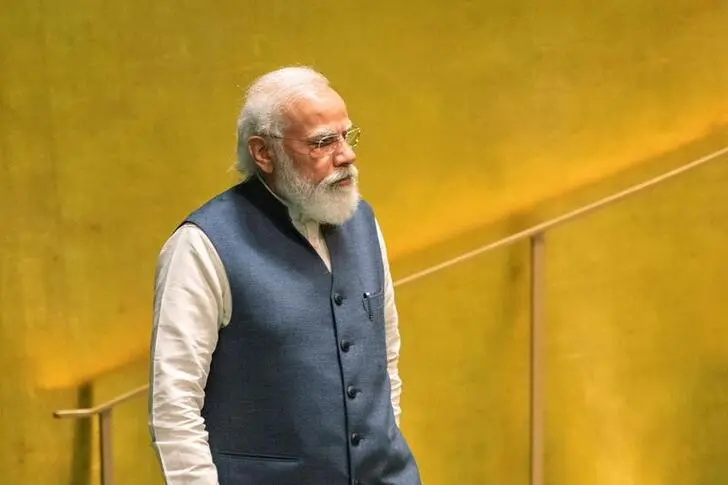PHOTO
NEW DELHI - Indian Prime Minister Narendra Modi defended his government's efforts to fight the COVID-19 pandemic over the last two years, saying on Tuesday they led to high economic growth and middling inflation, unlike the situation in some advanced economies.
Economic growth is estimated at 9.2% in India's fiscal year ending in March and at 8% to 8.5% the next, after a contraction of 6.6% in fiscal 2019/20, while retail inflation hovers around 5.5%, well within the central bank's target of 2% to 6%.
The government has distributed free foodgrain to 800 million people during the pandemic, while taking steps to tame inflation, Modi told the upper house of parliament in remarks that triggered an opposition boycott of his speech.
"I want to assure everyone that while the pandemic lasts, we will protect the poor," Modi said, as he accused opposition parties of creating panic about the impact of the pandemic.
India's COVID-19 death toll crossed 504,000 on Wednesday, a level some analysts said was breached last year, but was obscured by inaccurate surveys and unaccounted dead in rural areas, where millions remain vulnerable to the disease.
Despite the pandemic, India's economy was growing at the fastest pace among major economies, while manufacturing incentives helped bolster growth, Modi said.
"We have moved further on the growth path," he said, adding that the government had offered financial incentives for domestic manufacturing, and helped spearhead a push by small and medium businesses into critical sectors such as defence.
Opposition criticism of Modi's handling of the pandemic highlighted that India slipped last year to 101 among 116 nations on the Global Hunger Index, from a previous ranking of 94, while many people faced difficulties.
P. Chidambaram, a senior leader of the main opposition Congress party, blamed government policies for a rise in inflation and loss of jobs during the pandemic, besides widening income inequalities.
"Welfare has been thrown to the wind," the former finance minister told parliament, while accusing the government of supporting a few favourite industrialists, at a time when nearly 46 million people, of a population of nearly 1.4 billion, had been pushed into extreme poverty.
"India's economy has not recovered yet to the level in the pre-pandemic year of 2019/20," he added.
(Reporting by Manoj Kumar; Editing by Clarence Fernandez) ((manoj.kumar@thomsonreuters.com; +91(11) 49548029;))





















